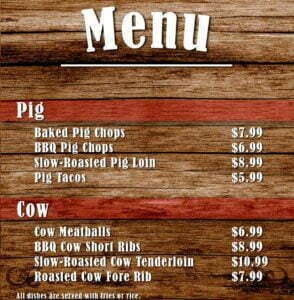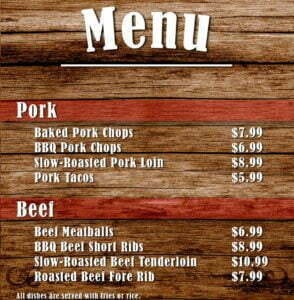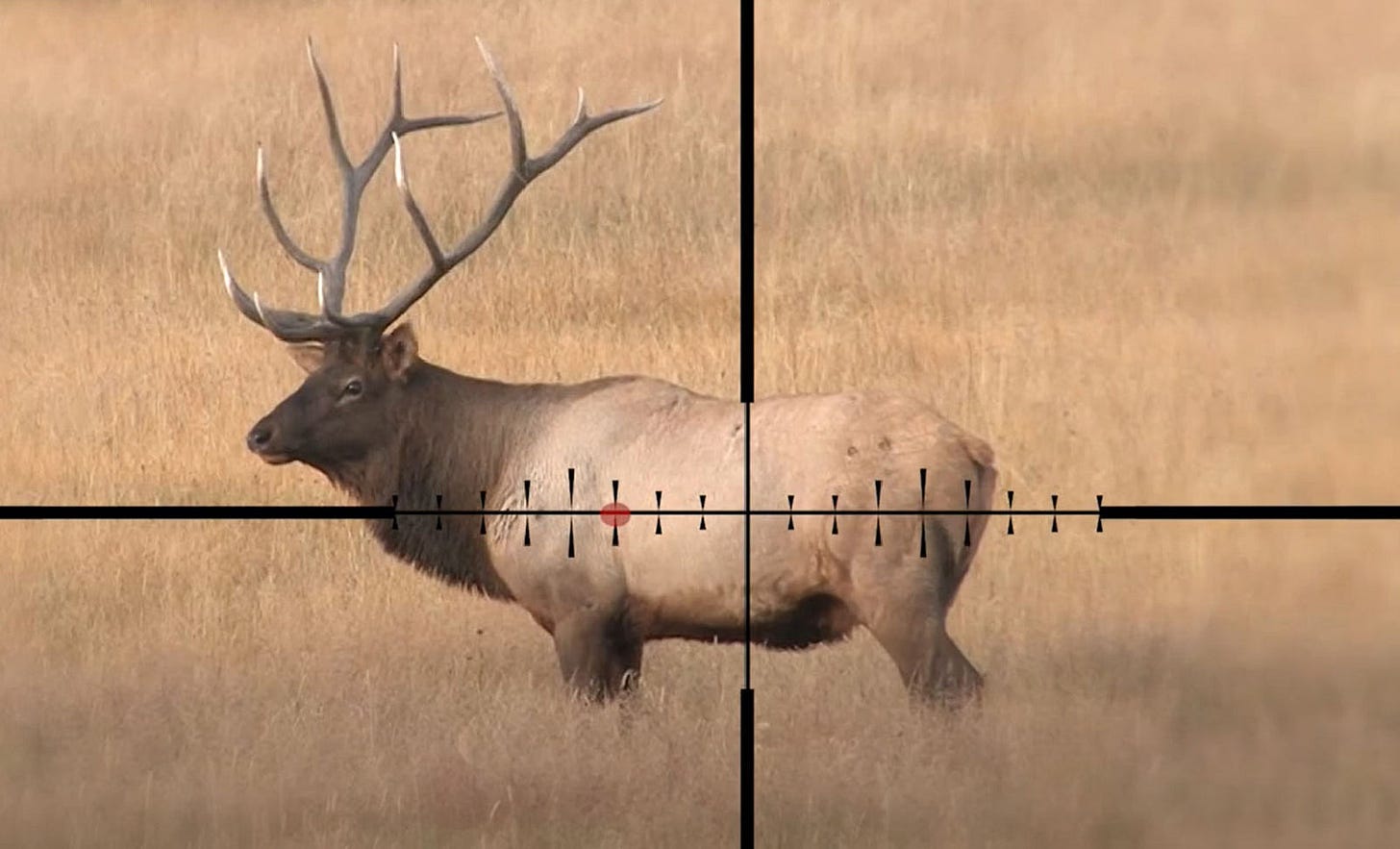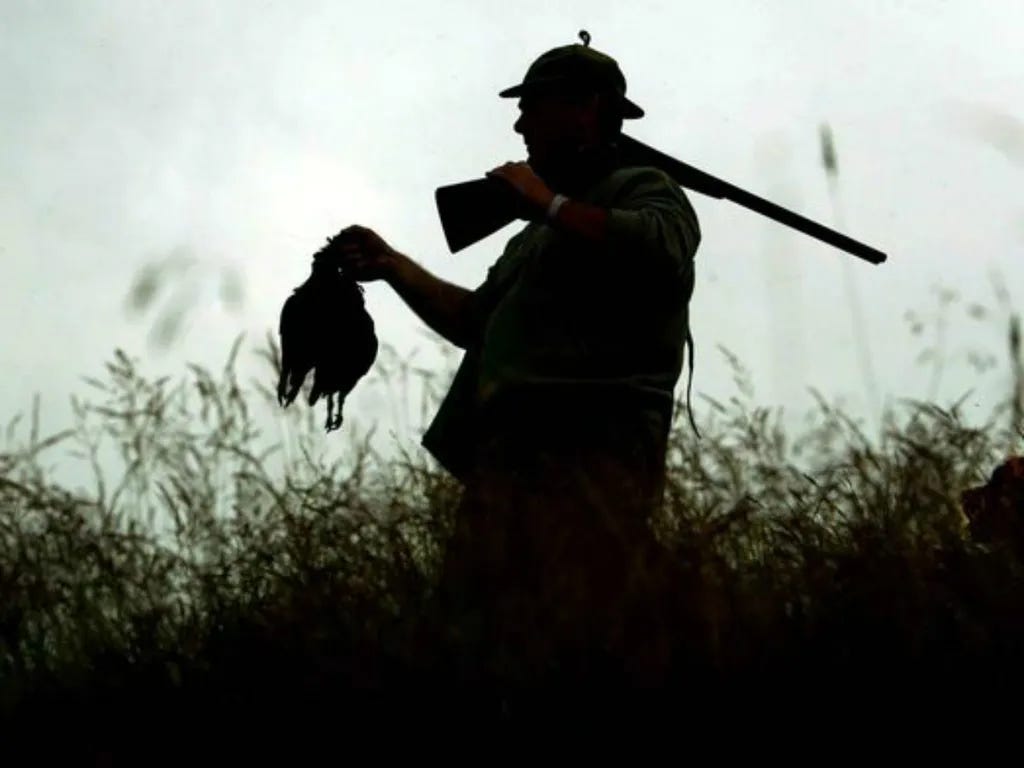The article’s title is a question I’ve come across on Quora. Unfortunately, it is a good and very uncomfortable question - but it comes with an answer that’s ignorant at best. The writer states that “hunters kill for the meat ( some are trophy hunters which I don’t condone) and want clean fast kills. Abuse on the other hand is done deliberately to inflict pain and lacks empathy. One is supposed to be a quick kill, the other is to inflict pain and suffering over a long period of time.”
Hunters of the distant past hunted mostly for the meat - and many indigenous peoples and rural communities today still do so. But we live in a world peopled with hobby-hunters who hunt for the joy of it (which denotes an incredible lack of empathy). The opposite of “clean” kills is commonplace. And the abuse, whether they think of it that way or not, is entirely built into the very idea of hunting down and killing innocent animals.
“Hunting played an important role, next to plant gathering and scavenging, for human survival in prehistoric times, but the vast majority of modern hunters in developed countries stalk and kill animals for recreation. Hunting is a violent and cowardly form of outdoor entertainment that kills hundreds of millions of animals every year, many of whom are wounded and die a slow and painful death.” (IDA)
Cognitive dissonance
A great deal of what the modern world keeps on doing to the animal kingdom with incredible abandon, is steeped in cognitive dissonance. Just as there are countless examples from humanity’s past and present that show how we’re experts at dehumanizing other humans using language, calling them sub-human, apes, mongrels, vermin, etc.), we’ve also perfected jargon that dehumanizes animals. Our species’ psychology of dehumanization applies very much also to non-human species. We deny them moral value, disregard their intelligence, ability to think and feel, and “this denial of mind undermines moral concern for farmed animals.”
👉 Read, if you dare, an insightful article about the “meat paradox”
The very same lack of concern applies to wild animals, too, of course. I get hunting for the necessity of it. I have zero issue with that. What I will never understand is that people can look through their rifle’s scope, see a bear or wolf or lynx or deer - or a stunning jay, a gleaming fox, a strutting black grouse, a thumping hare, a happily chattering magpie - and then pull the trigger for the joy of it. I believe that, if we want our species to progress toward the better, we absolutely must evolve away from hobby/joy slaughter of billions of innocent animals.
The power of language
Language is a great enabler. Language, as we live it and use it, can also be a great destroyer. When it comes to animals, we’ve done our best to do our worst for animals. And of course we’ve also employed this when it comes to the animal meat we eat.
It’s long been studied that people wouldn’t eat nearly as much meat if the origin of the meat were not softened/disguised. That’s why, in the English language, pig is pork, cow is beef, and deer is vension.
👉Here’s an interesting one I hadn’t thought of before. The simple language difference of using the plural of chicken. Chicken is such an common word. But if, instead of asking “Do you eat chicken?”, you ask, “Do you eat chickens?” … feel the difference? That plural suddenly turns matters from a product into animals.


Then there are sayings and slurs and put-downs. A typical put-down is when we call someone a pig or a dog or an ass. Which says everything us and nothing at all about the animal. But by doing this, by having done this for countless generations, we’ve built that language - and the corresponding sentiment about said animal - into our collective minds.
👉 Peta takes a closer look at language and offers better alternatives
Now then, let’s talk hunting language
Just as with farmed animals, euphemisms play out nicely in the world of people who like to shoot animals (some might call them hunters). Some of the language is very much about making it look like it’s all fun and, literally, game.
Sport
It is quite common for the shooting industry to call hunting a sport. And in the UK they often call shooting estates “sporting estates.” An actual sport is competition between willing participants. Whether that’s soccer or chess or golf or skiing or tennis, you name it - it is about people who decide that they wish to participate, people who understand the rules and are willing to play in the knowledge of risk and reward. Hunting is nowhere near any of that. Hunters have found all sorts of ways to pull the wool over the public's eyes. Calling hunting a sport is one such way.
“A true sport involves an even competition between two willing participants. When one side has all the equipment and all the advantages and the other side doesn’t even realize that he or she is involved and dies in the end, no, that’s not a sport.” (Peta)
Game
Very much in line with the above sport. The word is defined as “an activity that one engages in for amusement and fun”. Well, in hunting jargon “game” is what the to-be-killed animals are.
Quarry
Very much similar to “game”. Here’s one explanation from a hunting glossary: “The animal that is being hunted or shot, for example pheasant or partridge. On a game day the upmost respect must be shown to your quarry. Birds should be handled delicately and not thrown on the floor or allowed to be damaged by dogs. The birds from a game shoot are generally sold to a game dealer.” I’m so glad to show that “utmost respect” to the quarry.
Harvesting
You often hear or read about “harvesting” - as if animals were a crop. Animals are not like wheat or corn, animals have emotions, experience happiness and fear, have families and strong social structures with often lifelong relationships. Thinking of them in terms of crop removes all of that inconvenient truth.
Sustainable harvest
What the hunting community calls a sustainable harvest is the amount of animals that can be shot “without negatively affecting the population as a whole” … so that, comes next shooting season - more of the fun can be had. Whether you look at this from the point of the animals, or from a point of ecology, there’s nothing sustainable here.
Bag
After you shoot any number of birds, you can of course say that you shotgunned innocent animals out of the sky, but it’s ever so much nicer to just say that you’ve bagged them.
Drive
When you enjoy driven shooting, you basically stand with others in a line, while the beaters scare birds into the air and drive them in your direction. It’s just a drive, it’s not like you’re terrifying hundreds and thousands of birds toward massacre.
Runner
Oh my - here’s a good one I’ve found - cognitive dissonance at its best: “A bird that has unfortunately been wounded but is still able to run. It is vitally important that these birds are retrieved by the picking up team so that they can be dispatched as quickly and humanely as possible.”
Ferreting
“Ferrets are put down rabbit warrens to make the rabbits bolt outside into a waiting net. The rabbits are then shot immediately or dispatched humanely with a priest.” Wait, what? A priest!?
Priest
“An instrument used for dispatching injured game humanely. Also called a poacher's priest, game warden’s priest, angler’s priest, fish bat or persuader, is a tool for killing game or fish. The name comes from the notion of administering the last rites to the fish or game.” Wanna see some lovingly made game priests?
Pest control
This is a very convenient way for “hunters” to do some practice shooting. Pest control is the killing of pigeons, rabbits and crows. These animals are, in fact, in no way shape or form pests.
The Glorious 12th
One of my favorite terms. The 12th of August marks the start of the grouse shooting season in the UK and its name clearly highlights how joyous a day it is for those who participate in it. For anyone claiming that hunting is done for conservation or other meaningful reasons - well, the “Glorious 12th” moniker should be enough to end any of those smokescreen arguments.
👉 Why it’s time to end grouse shooting
Finally …
With all of the above, let me repeat that I get hunting out of necessity. There are valid reasons, such as hunting for food, hunting to regulate populations, hunting to remove invasive species, hunting to kill a so-called problem animal (as a last resort), hunting to kill a sick animal (if there are no natural predators doing the job). I’m sure that most professional hunters have, just as did hunters in the past, a sound respect for nature. Joy hunting/shooting, however, is utmost cruelty and a sign of degeneration.
If we are serious about moving forward as a species (and I know we’re not), then relegating hobby hunting to the past should be an obvious step. There should only be professional hunters, hired to do a professional job. The killing of animals should be illegal by any non-professional. Today, most of what the hunting/shooting/gun industry produces, are hobby hunters. They “hunt” for the joy of it, the thrill of it and, incredibly, for the selfie of it (see below).
Cheers,
PS: I’ll leave it to you to peruse … I’ve simply taken a few Google Images snapshots - I’ve searched for “hunting” plus UK, USA, Australia, Switzerland, Germany, Sweden, Malta, Russia and Africa. These are the search results. I didn’t want to out anyone in particular, just for you to get an overall sense. When you look at these images you’ll find it difficult to not see the fun and joy associated with killing these many, many, many innocent animals.









If you enjoy the Rewilder Weekly …
… consider supporting my work. Your paid subscription will help generate the funds needed to realize a unique rewilding book I’m working on. And, of course, that paid subscription also ensures that the Rewilder Weekly will always keep going for those who cannot afford to pay. A thousand thanks!









